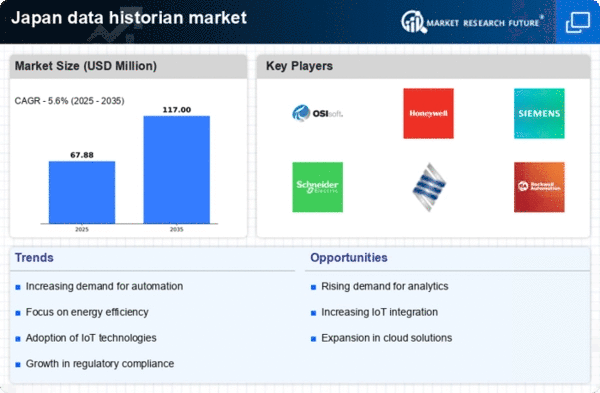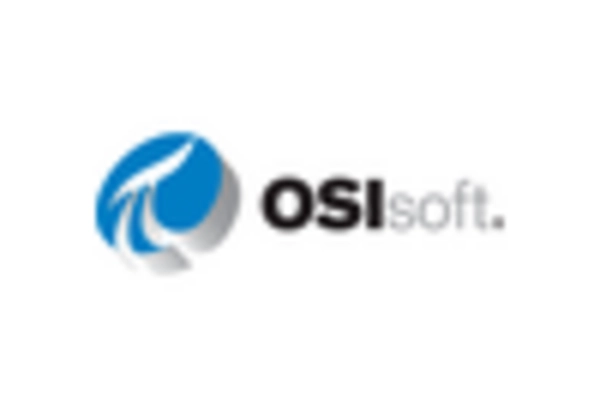Rising Demand for Real-Time Data Analysis
The data historian market in Japan experiences a notable surge in demand for real-time data analysis capabilities. Industries such as manufacturing and energy are increasingly reliant on instantaneous data insights to enhance operational efficiency and decision-making processes. This trend is underscored by a reported growth rate of approximately 15% in the adoption of real-time analytics solutions within these sectors. As organizations strive to optimize their performance, the data historian market is positioned to benefit significantly from this shift towards real-time data utilization, enabling businesses to respond swiftly to market changes and operational challenges.
Expansion of Smart Manufacturing Initiatives
The push towards smart manufacturing in Japan significantly influences the data historian market. As industries adopt advanced technologies such as automation and AI, the need for comprehensive data collection and analysis becomes paramount. The Japanese government has been promoting initiatives aimed at enhancing manufacturing efficiency, which is expected to result in a 20% increase in the deployment of data historian solutions over the next five years. This trend indicates a growing recognition of the importance of data historians in facilitating the transition to smart manufacturing, ultimately driving market growth.
Growing Importance of Predictive Maintenance
Predictive maintenance is emerging as a critical focus area within the data historian market in Japan. Organizations are increasingly leveraging data historians to analyze historical data and predict equipment failures before they occur. This proactive approach not only minimizes downtime but also reduces maintenance costs, making it an attractive strategy for various sectors, including transportation and utilities. The market is anticipated to witness a growth rate of 12% as companies recognize the value of predictive maintenance in enhancing operational reliability and efficiency, further solidifying the role of data historians in modern industrial practices.
Increased Regulatory Compliance Requirements
Japan's stringent regulatory environment necessitates robust data management solutions, thereby driving growth in the data historian market. Companies are compelled to adhere to various compliance standards, including those related to data privacy and security. This has led to an increased investment in data historian systems that can ensure compliance while providing reliable data storage and retrieval. The market is projected to grow by 10% annually as organizations prioritize compliance-driven data management strategies, highlighting the critical role of data historians in maintaining regulatory adherence and safeguarding sensitive information.
Adoption of Advanced Analytics and Machine Learning
The integration of advanced analytics and machine learning technologies into the data historian market is reshaping how organizations in Japan manage and utilize their data. Companies are increasingly seeking solutions that not only store data but also provide analytical capabilities to derive actionable insights. This trend is reflected in a projected market growth of 18% as businesses recognize the potential of data historians to support advanced analytics initiatives. By harnessing machine learning algorithms, organizations can enhance their data-driven decision-making processes, thereby driving innovation and competitiveness in their respective industries.
















